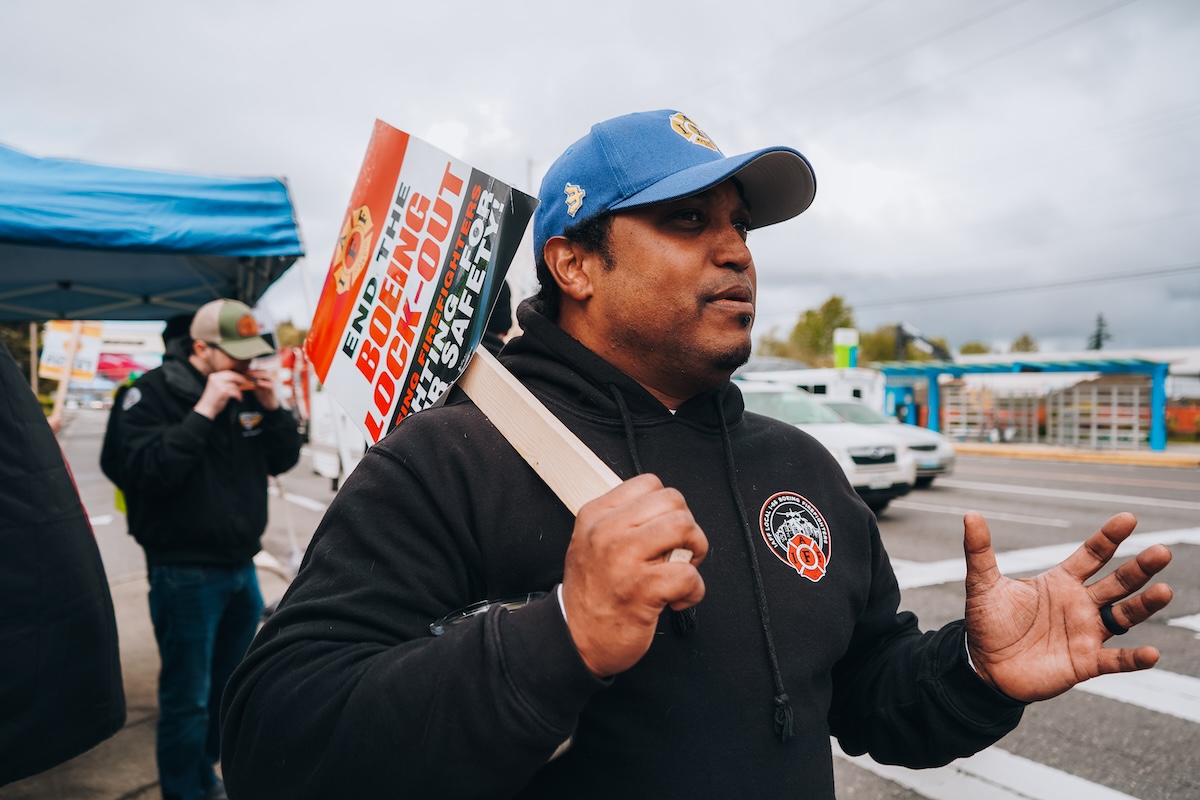Boeing Fire Fighters Local I-66 is standing strong, organized, and motivated days after the global aerospace manufacturer locked its members out of its Washington State facilities, the latest in a months-long dispute over fair pay and safety.
Local I-66 represents 125 fire fighters and emergency medical workers who protect the Boeing Company’s people and property. The Local and its allies have been walking 24/7 picket lines at six Boeing facilities around the state. The Boeing fire fighters, buoyed by vocal support from other unions, Boeing vendors, and their community, remain steadfast and determined to secure a fair contract and return to their jobs as soon as possible.
“We love working for Boeing. The company and the thousands of people working for them are like our family. But the time has come for Boeing to get serious about its safety culture, and that includes treating its dedicated fire fighters fairly,” said Casey Yeager, Local I-66 president.
With salaries starting at $25 an hour (about $52,000 a year), Boeing fire fighters must contend with chronic understaffing as many fire fighters leave for better-paying jobs in other fire departments. It also takes Boeing fire fighters 14 years to reach top pay, a threshold only about a quarter of I-66 members ever reach. Boeing wants that extended to 19 years, a key sticking point in contract negotiations.
I encourage folks to return to the table to secure a deal that benefits Boeing and gets these fire fighters the pay and benefits they deserve.
PResident Joe Biden
According to MIT, an adult with no children would need to earn $30.08 an hour to make a living wage in King County, Washington. A single adult who has one child would need to earn $52.10. Though I-66 members work for the world’s fourth-largest corporation in dollars, they are paid up to 30 percent less than those in nearby municipal departments.
Boeing has claimed that I-66’s work differs from municipal fire departments and should not be comparable. In fact, Boeing fire fighters work 24/48 schedules and are specifically trained in the intricacies of responding to complex manufacturing environments.
Members provide firefighting support during aircraft refueling, takeoff, and landing, as well as handle medical emergencies. Members are trained in confined space rescue, and as hazardous material and emergency medical technicians. Some even have specialized training from NASA to retrieve astronauts from the Boeing Starliner.
I-66’s on-site presence at Boeing facilities saved the company about $9 billion in insurance costs in 2020 alone, according to the Labor Notes.
“Boeing is one of the richest companies in the world, and has made billions by putting profits over safety, nickel-and-diming the frontline fire fighters who protect their factories and workers,” said General President Edward Kelly. “If Boeing were serious about safety, it would improve the working conditions of its fire fighters and pay them fairly for the critical service they provide.”

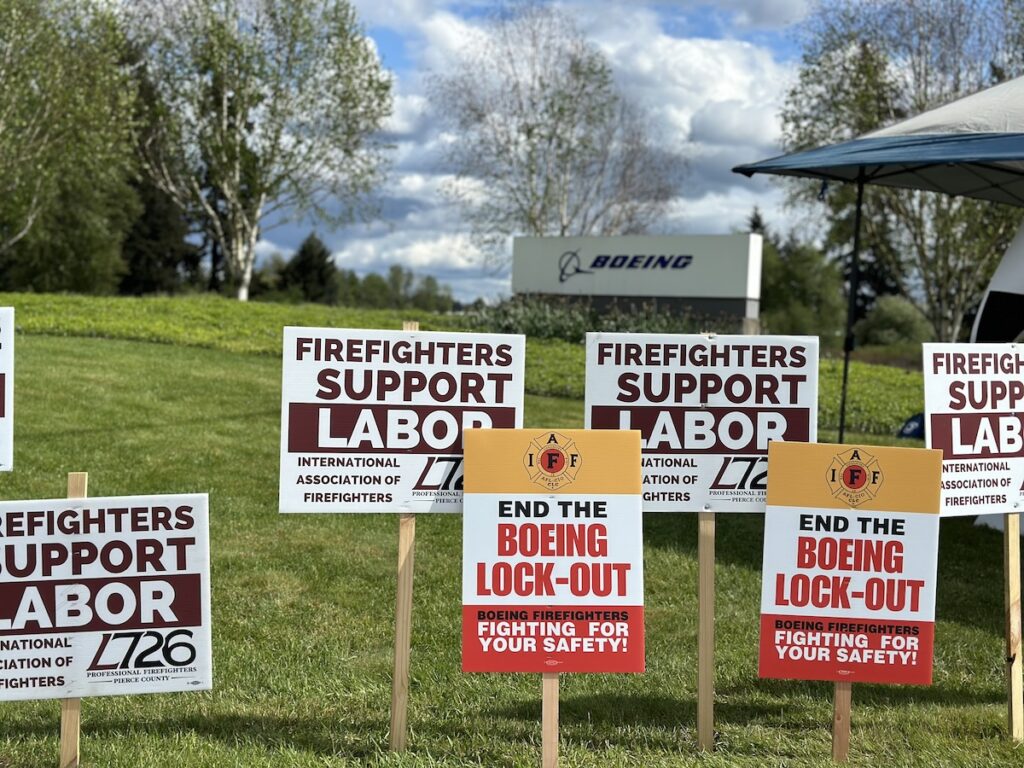
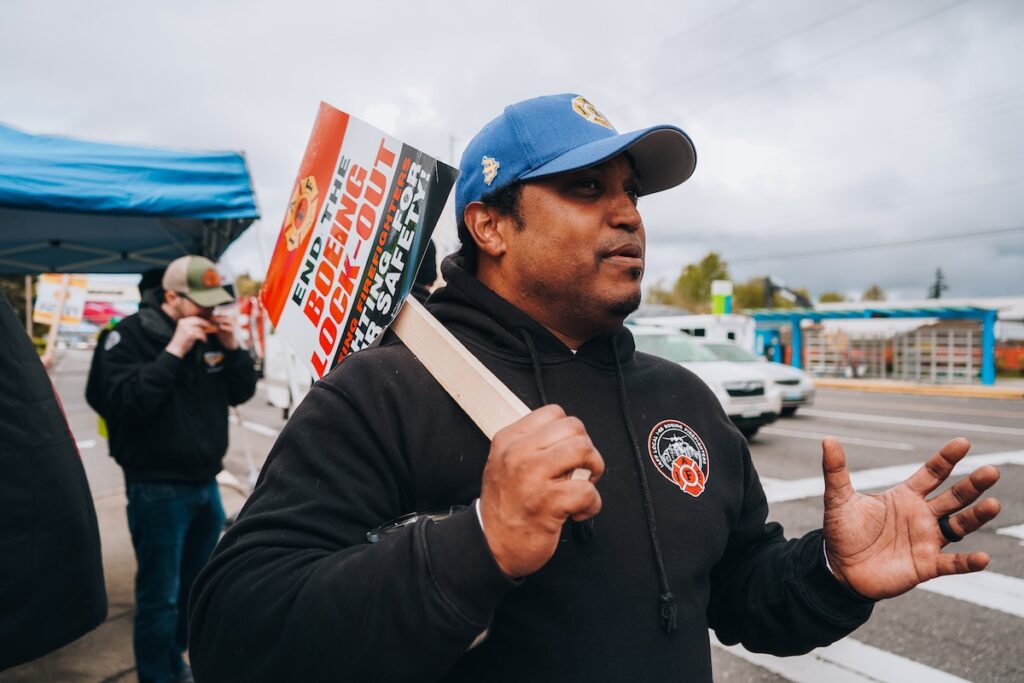
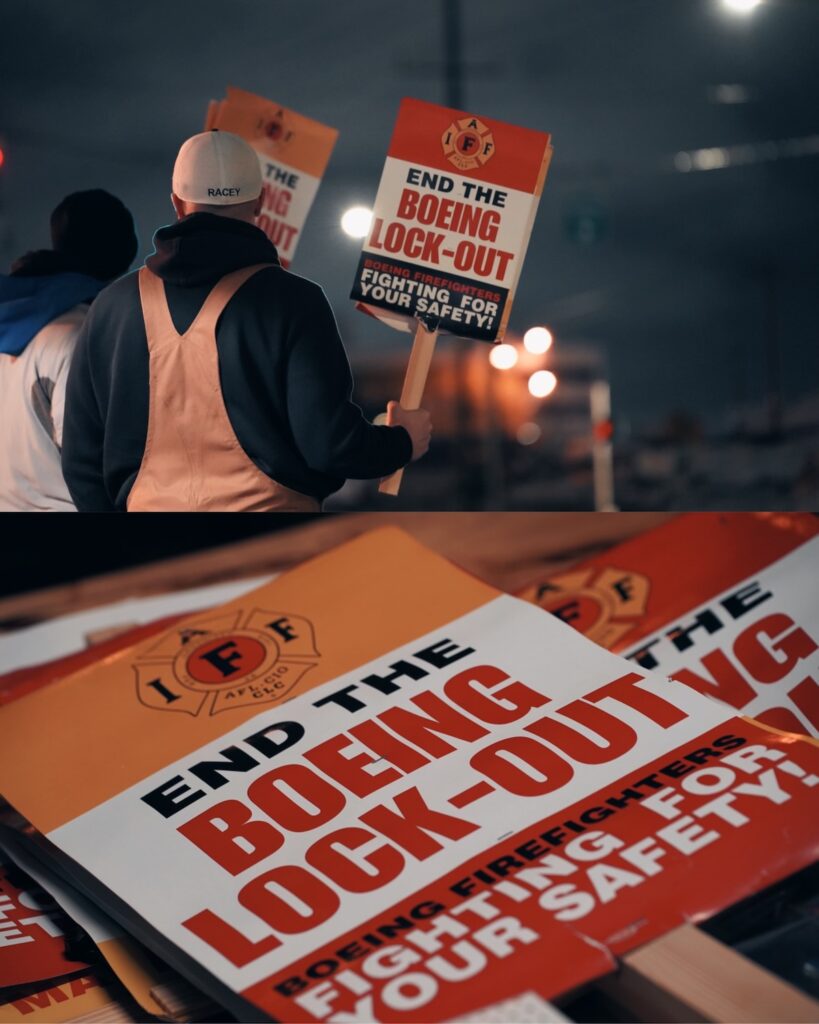
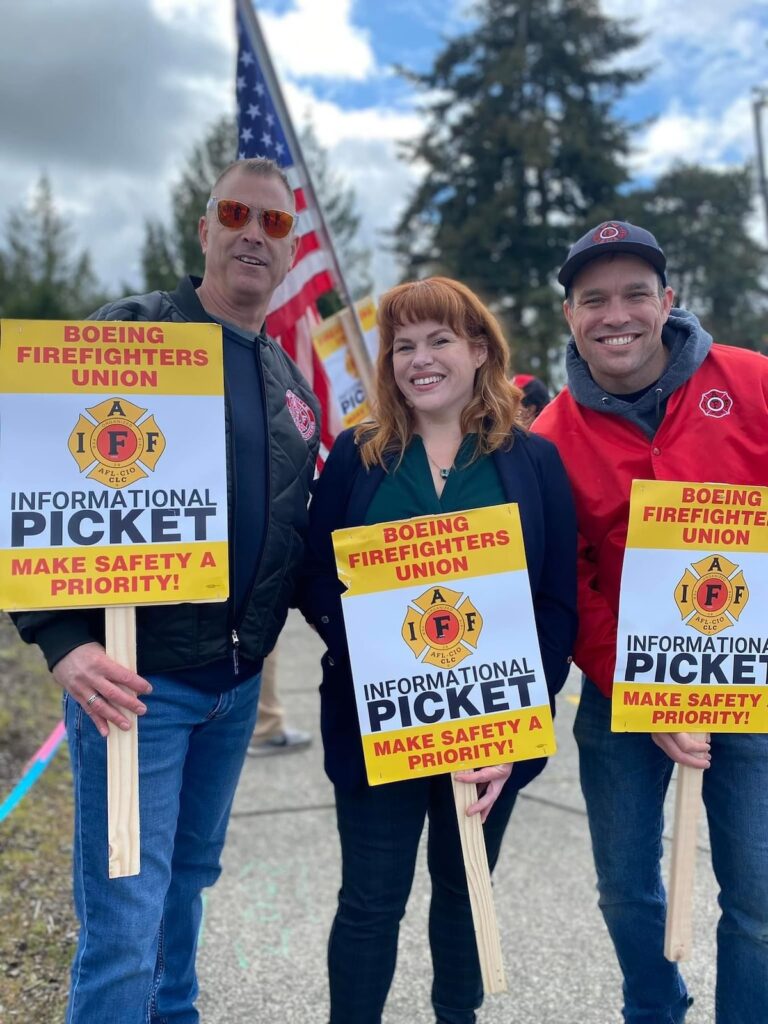
Despite ongoing safety concerns, Boeing has remained immovable in contract negotiations with Local I-66.
After nearly three months of talks, including some with federal mediation, Boeing failed to present a reasonable offer providing its fire fighters a living wage. Then, at midnight on May 4, Boeing announced a lockout and implemented a contingency plan relying heavily on nearby municipal fire departments. Boeing fire fighters warn this band-aid approach to fire protection is unsustainable, and a safety risk.
Leadership from the International and the 7th District continue to support the Boeing fire fighters as they strengthen pickets at the gates of six Boeing locations in Renton, Seattle, Auburn, Frederickson, Renton, Everett, and Moses Lake.
“Long hours and hard work are nothing new for the Magnificent 7th. We will not let Boeing bully us. We will keep at this until Boeing comes to its senses,” said 7th District Vice President Ricky Walsh.
Meanwhile, other Boeing unions voiced support for the Boeing fire fighters. The International Brotherhood of Teamsters, the International Association of Machinists (IAM), and the Society of Professional Engineering Employees in Aerospace (SPEEA) have shown solidarity, vowing to honor the strengthening picket lines.
President Joe Biden has voiced his support for the IAFF members, saying on social media: “Collective bargaining is a right that helps employers and employees. I’m concerned by reports that Boeing locked out IAFF I-66 members. I encourage folks to return to the table to secure a deal that benefits Boeing and gets these fire fighters the pay and benefits they deserve.”
Boeing has been under intense federal scrutiny for safety and quality control issues. In January, a door plug blew off a Boeing 737 Max 9 while in flight. Since then, the Federal Aviation Administration has faulted Boeing for multiple instances of poor quality control. Faulty flight software was found to be the cause of two 737 Max crashes in 2018 and 2019, which killed 346 people.
Another Boeing-made airplane crashed May 9 in Senegal with 11 injuries and no fatalities were reported. The incident is under investigation.
